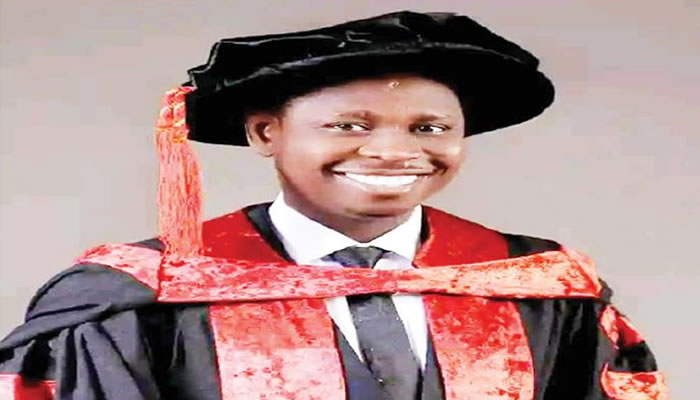The urgent need for educational reform in Rivers State, particularly within the Ogoni region, has been brought to the forefront by Dr. Lenu Goodluck Wege, a senior lecturer at Kenule Beeson Saro-Wiwa Polytechnic. Dr. Wege’s impassioned plea for the Rivers State Sole Administrator to declare a state of emergency in the education sector underscores the dire situation faced by students in the area. He paints a grim picture of dilapidated infrastructure, inadequate resources, and a severe shortage of qualified teachers, all contributing to a learning environment far from conducive to academic success. His call to action emphasizes the critical need for immediate intervention to prevent the further deterioration of the educational system and secure a brighter future for the children of Ogoni and Rivers State as a whole.
Dr. Wege’s concerns center on the deplorable conditions within Ogoni schools. He highlights the stark reality of students learning under trees, lacking access to basic amenities such as classrooms, libraries, laboratories, and computers. This lack of essential infrastructure severely hampers their ability to receive a quality education, placing them at a significant disadvantage compared to their counterparts in other regions. He stresses the impact of this technological deficit, noting that Ogoni students often perform poorly on computer-based exams not due to a lack of intelligence, but simply because they have never had the opportunity to familiarize themselves with computers. This digital divide further exacerbates the educational inequalities they face.
The challenges extend beyond the lack of infrastructure. Dr. Wege describes schools forced to suspend classes during rainfall due to inadequate shelter, and a pervasive absence of basic amenities such as electricity, water, and proper sanitation facilities. These conditions create an environment where learning is not only difficult but also unhealthy and potentially unsafe. He emphasizes that these students deserve better and that providing safe and conducive learning environments is not merely a desirable goal, but a fundamental necessity for ensuring their educational development and overall well-being.
The scarcity of qualified teachers further compounds the crisis. Dr. Wege reveals that some schools in Ogoni have only one or two teachers, forcing communities to rely on untrained volunteers to educate their children. This reliance on unqualified instructors not only compromises the quality of education but also highlights the systemic neglect and lack of investment in the education sector within the region. He argues that this makeshift approach is unsustainable and underscores the urgent need for government intervention to recruit and deploy qualified teachers to these underserved schools.
The long-term consequences of this educational crisis are far-reaching. Dr. Wege warns that if these inadequacies are not addressed, many students will be forced to drop out of school, limiting their future opportunities and potentially contributing to a cycle of poverty and deprivation. He also raises concerns about the potential security implications of neglecting education, arguing that without proper education and opportunities, these young people may become susceptible to criminal activities, posing a threat to themselves and their communities. He stresses the importance of investing in education not only for individual development but also for societal well-being and security.
Dr. Wege’s appeal to the Sole Administrator is a call for immediate and decisive action. He urges the government to prioritize education, allocate adequate resources, and implement comprehensive reforms to address the systemic challenges plaguing the sector. He emphasizes that rebuilding the educational infrastructure, providing necessary resources, and ensuring access to qualified teachers are crucial steps towards restoring the quality of education in Rivers State. He underscores the importance of this investment for the future of the state, highlighting that the quality of the education system directly impacts the potential of its citizens and the overall prosperity of the region. He concludes that failing to address these issues would be a disservice to the children of Rivers State and a detriment to the future of the state itself.


